Forty-five years ago this month I was eating Pillsbury Space Food Sticks, building my own mini lunar module from a kit, and drinking Tang — the beverage of astronauts! Like the rest of the world, I was caught up in Apollo 11 moon-landing mania, as Neil Armstrong took that first giant step on July 20, 1969. The event spawned national pride, crackpot conspiracy theories, and countless innovative spinoff technologies. It also inspired an androgynous young British performer to release a song that would define his career.
 David Jones had been kicking around London’s music scene since the early 1960s with limited success. In 1967 he changed his name to David Bowie and began experimenting like mad with various weird personae and musical styles. He was poised to become one of the most creative, mercurial, and artfully attired performers in history.
David Jones had been kicking around London’s music scene since the early 1960s with limited success. In 1967 he changed his name to David Bowie and began experimenting like mad with various weird personae and musical styles. He was poised to become one of the most creative, mercurial, and artfully attired performers in history.
As the decade came to a close, earthlings everywhere were buzzing about the impending moon walk. And Bowie had the moxie to capitalize on it. On June 20, 1969, he recorded an ethereal tune called “Space Oddity.” The title is a takeoff on Stanley Kubrick’s 1968 sci-fi flick 2001: A Space Odyssey. The song concerns a lone astronaut named Major Tom, who loses contact with Ground Control after departing his capsule to float in space. Many believe the song was an attempt to mock the U.K.’s failed space program. Some think it’s a metaphor for LSD tripping.
Bowie released the single on July 11, intending BBC radio to debut it on the day of the moon landing. “The Beeb,” as it’s affectionately called, decided not to air it until the Apollo crew had safely returned to earth. The song reached #5 on the U.K. charts and was awarded the country’s prestigious Ivor Novello award that year, but it made little impact in the U.S., charting at #124. (Its re-release in the U.S. in 1973 garnered the artist his first American hit.)
“Space Oddity” was the first in a series of records inspired by Bowie’s fascination with otherworldly themes and alien beings. The 1972 concept album “The Rise and Fall of Ziggy Stardust and the Spiders from Mars” introduced an extraterrestrial rock star who comes to earth to deliver a message of hope as the planet slowly dies. The LP included spacey songs like “Moonage Daydream,” “Starman,” and “Lady Stardust.”
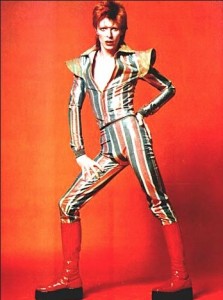 Future LPs featured other curious characters: Aladdin Sane (a lad insane), Halloween Jack, Lady Grinning Soul, and The Jean Genie (he says he’s a beautician / and sells you nutrition / and keeps all your dead hair for making up underwear). Bowie’s keen interest in George Orwell’s novel of a post-apocalyptic world inspired songs like “1984” and “Big Brother.” In 1976 he played the lead character in the film The Man Who Fell to Earth, about a humanoid alien sent to earth to bring water back to his drought-stricken planet. No rock star before or since has so comfortably worn the mantle of the outrageous alien as David Bowie. So, is it any wonder his only son would grow up with the same love of all things cosmic?
Future LPs featured other curious characters: Aladdin Sane (a lad insane), Halloween Jack, Lady Grinning Soul, and The Jean Genie (he says he’s a beautician / and sells you nutrition / and keeps all your dead hair for making up underwear). Bowie’s keen interest in George Orwell’s novel of a post-apocalyptic world inspired songs like “1984” and “Big Brother.” In 1976 he played the lead character in the film The Man Who Fell to Earth, about a humanoid alien sent to earth to bring water back to his drought-stricken planet. No rock star before or since has so comfortably worn the mantle of the outrageous alien as David Bowie. So, is it any wonder his only son would grow up with the same love of all things cosmic?
Duncan Zowie Haywood Jones, born in 1971, is the offspring of David and his then-wife, American model Angela Barnett. His folks called him Zowie until he was old enough to desire a human name. Thus, he transitioned to Joey, then Joe, and finally to Duncan, at around age 18.
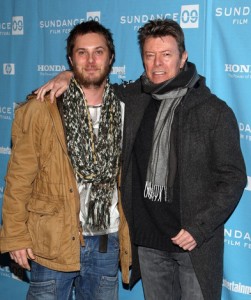
He earned a bachelor’s degree in philosophy from The College of Wooster and later attended London Film School, graduating as a director. At age 38 he made his first film, 2009’s Moon. It’s the story of an astronaut named Sam Bell (played by the fabulous Sam Rockwell) who’s nearing the end of a lonely three-year stint on the moon base Sarang. He works alone with only a computer named GERTY to assist him as he harvests Helium-3 and rockets it to an energy-starved Earth. As his contract draws to a close and retirement looms, he begins to experience hallucinations. He soon discovers a new, identical Sam. Is he a replacement? Is his employer, the conglomerate LUNAR, churning out clones to keep the operation running? Well, yes. Most companies do this, we just aren’t aware of it.
The film was a critical and commercial success, generating over $9 million worldwide. The British Academy of Film and Television Arts (BAFTA) presented Duncan Jones with the award for Outstanding Debut by a British Writer, Director or Producer. The movie won the award for Best British Independent Film, and garnered the Hugo Award for Best Dramatic Presentation, Long Form, beating out blockbusters like Avatar and District 9. Jones is reportedly planning a sequel to Moon, and may possibly produce a trilogy of films set in the same fictional universe.
So, it appears that producing brilliant outer space fantasies is a bit of a family business. (Now, if Duncan could only look as smashing in a Kansai Yamamoto vinyl bodysuit as Daddy). The Gods of the Cosmos have been very, very good to the Bowie family.
Here’s the original 1969 video of the song that launched Bowie into outer space:
© Dana Spiardi, July 20, 2014

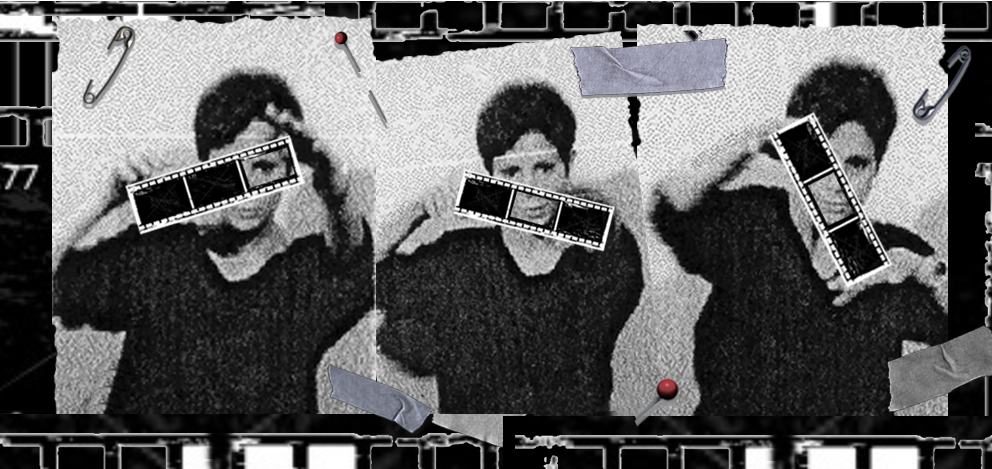
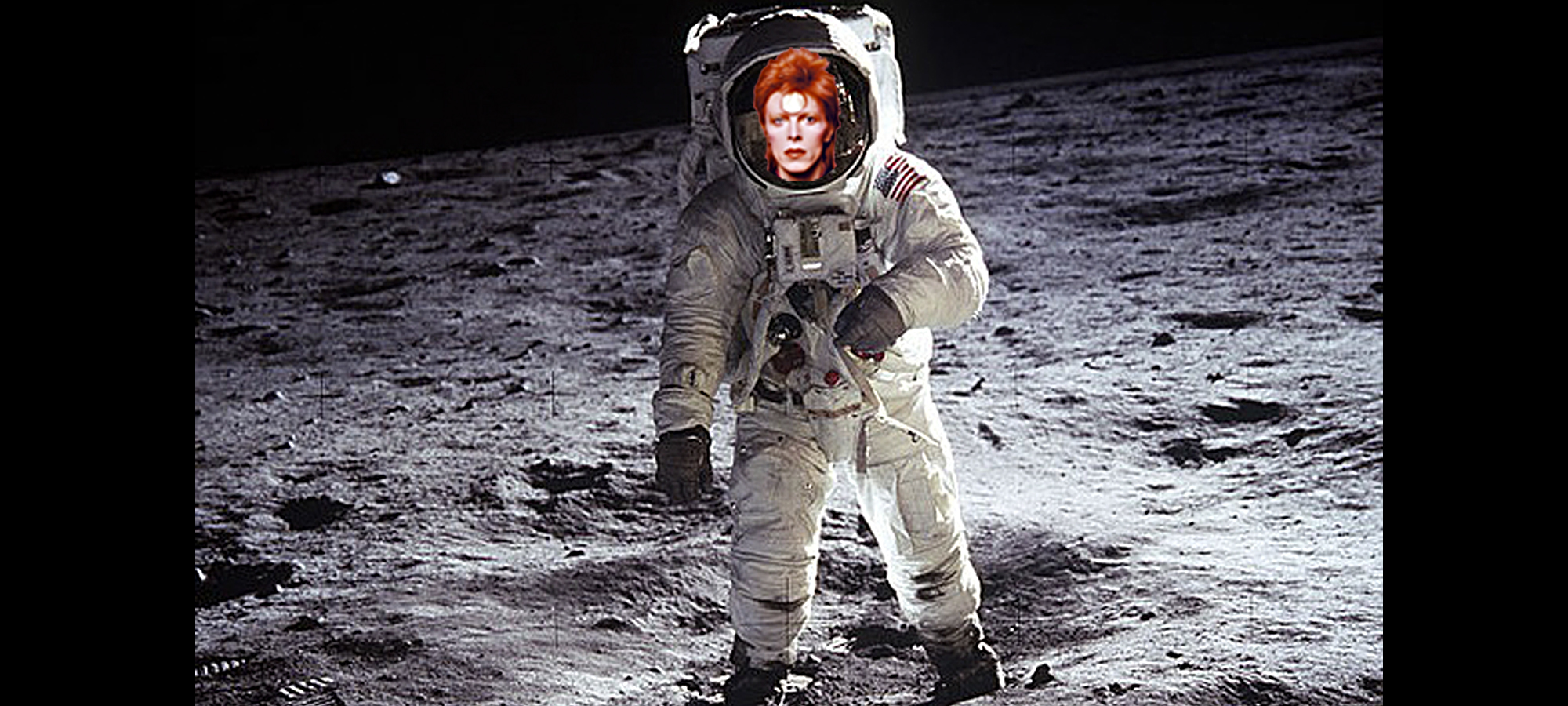
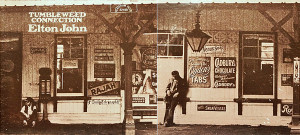
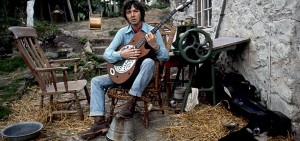
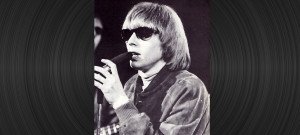
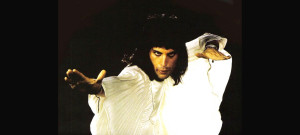
I got goosebumps reading the initial reflection on the summer of ’69. What’s all this talk of space and rockets and moons? Ashes to Ashes………..We know Major Tom’s a junkie!